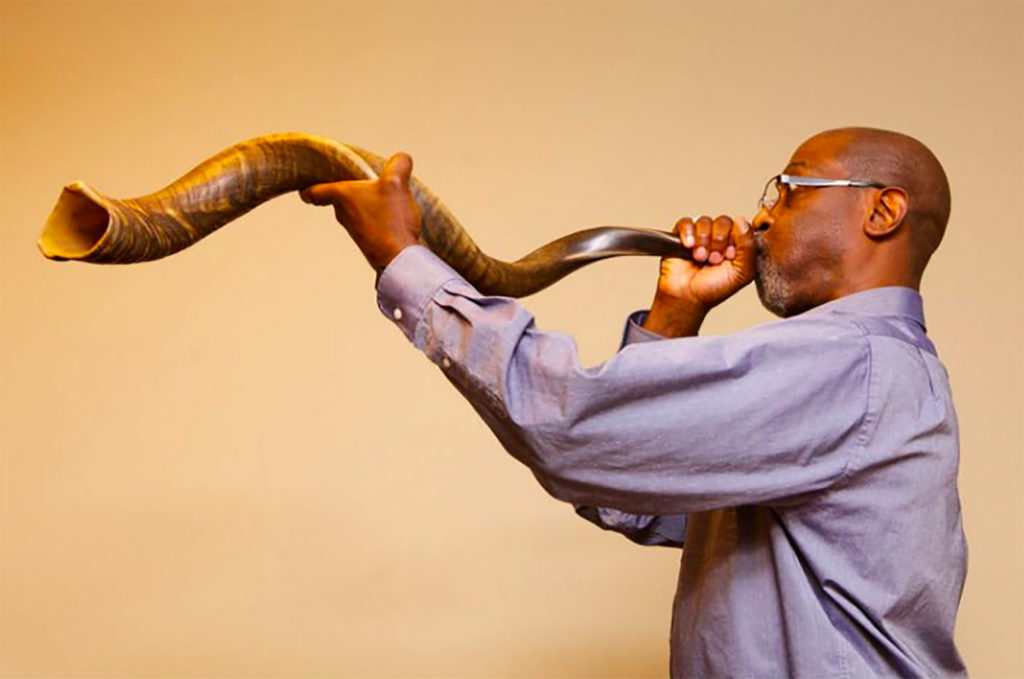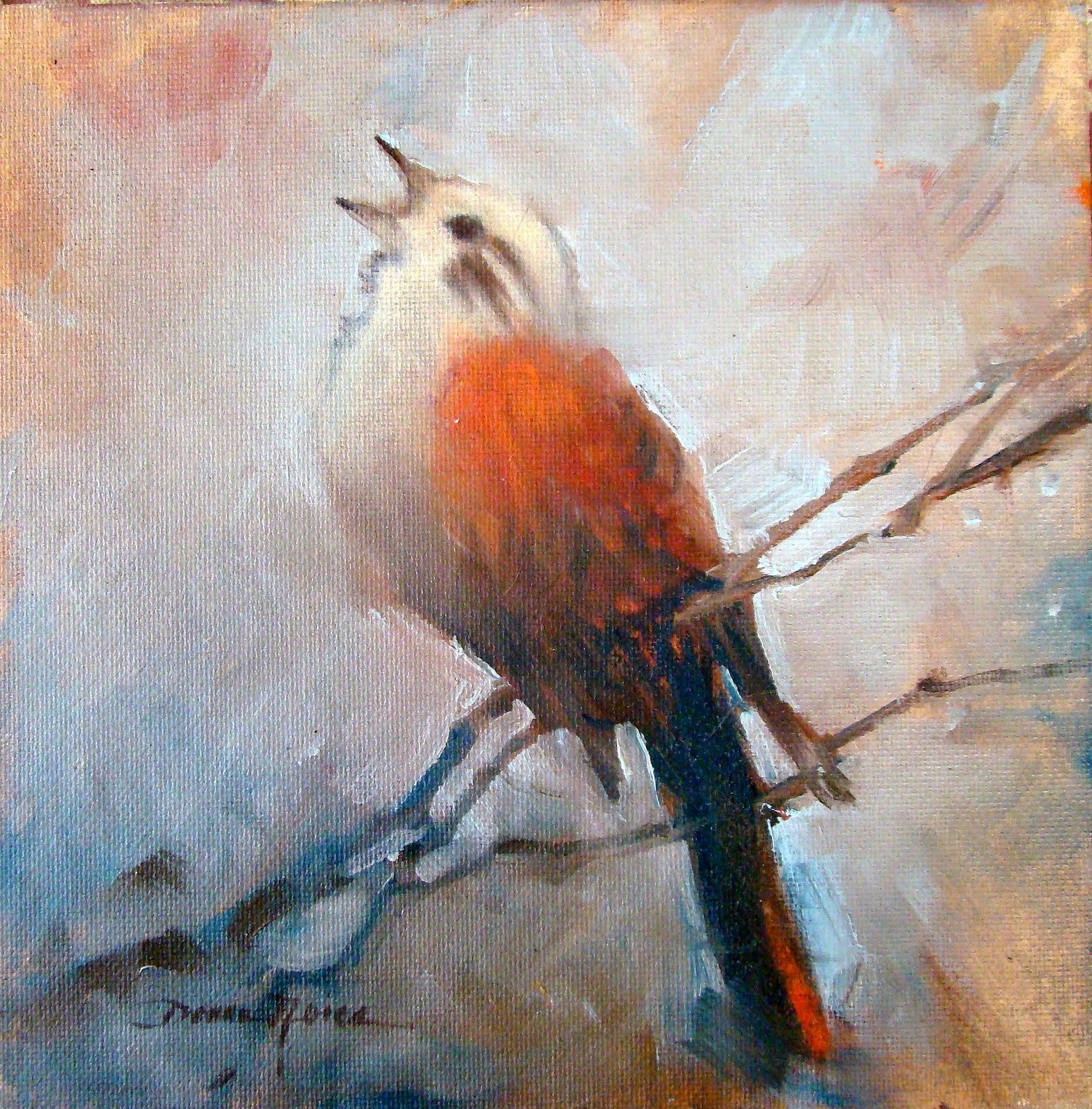by Adam Growald
Synagogues never seem to have enough air conditioning — at least that’s how I remember them growing up.
The prayer halls were probably designed for the number of congregants who attended synagogue regularly (almost nobody), and then the system would get overwhelmed by the number of congregants who attended synagogue for the High Holy Days (almost everyone). Anyway, the net result was that there I would sit on Rosh Hashanah or Yom Kippur: uncomfortably hot, even more uncomfortably bored, also uncomfortably wondering if there was any such thing as God, and if so what it meant… and most of all, just waiting to hear the shofar.
For those of you who don’t know: the shofar is an ancient musical instrument, typically made from the horn of a ram or kudu antelope, that is sounded in synagogue on the Yamim Noraim, which literally translates as the Days of Awe: the Jewish High Holy Days of Rosh Hashanah and Yom Kippur.

I loved the shofar. In fact, I still do, although now hearing it played in synagogue isn’t quite the same spectacle for me as it was when I was kid — for a very wonderful reason which I’ll come back to at the end of this story.
Tekiah! the rabbi would chant, and then the person playing the shofar would give a steady blast on the horn. Shevarim — another blast, this time of three broken, rising notes in short succession. Teruah! and a burst of short, staccato notes that sounded a little bit like a lawn sprinkler would emanate from the instrument. These would be repeated a few times throughout the service, and at the culmination of the whole thing we would hear, Tekiah Gedolah!
Ahh, that was my FAVORITE part. Tekiah Gedolah is just another Tekiah, but it’s a really BIG Tekiah, which means that the player would keep on going until he was purple in the face and had no more air left in his lungs. Then whooping and hurrahs and hugs from everyone in the congregation, congratulating the player on the duration of his blast, and (I think) also congratulating themselves for having survived the duration of the service.
But what does the shofar mean?I’m sure I was taught something about this in Hebrew School, and I know I could also do a quick Google search and probably find a whole range of interpretations, from the historical to the symbolic. But here, I want to tell you what it means to me — not to replace or refute any other meaning, but just to add another layer to it.
To me, the shofar doesn’t actually mean anything, in the sense of conveying an idea. The purpose of the shofar is just to give you an experience. The sound itself, and your experience of that sound as you listen and feel, is the whole meaning. And at some level, that is also the whole meaning of life.
In one of my favorite movie scenes, from Enter The Dragon, Bruce Lee’s character is giving a lesson to a student. At one point, he asks the student about the sparring that they just did: “How did it feel to you?” he asks. The student looks up and to the left, furrows his brow, and says, “Hm… let me think.” Lee slaps him and says, “Don’t think! FEEL!”
He goes on: “It is like a finger pointing a way to the moon.” The student looks at the finger, and Lee smacks him again. “Don’t concentrate on the finger or you will miss all that heavenly glory.”

When someone points to the moon, they’re saying, “Look! Look at THAT!” “Ooooh, the moon!” their companion might say, or think to themselves. But it’s not about the moon as a word or an idea. It’s about the actual experience of seeing the moon: a silver, shining disc high in the sky, coaxing hints of daytime color from the landscape; or the orange harvest glow of a moon rising just above the horizon; or the rocking curve of a crescent moon that magically implies a shape totally other than its own.
We’re so accustomed to automatically associating ideas with an experience of something that it’s often hard to separate the raw experience from the words, the thoughts that flood in to tell us what that thing is, to narrate our observations of it either to ourselves or to someone else. But the moment of the pure experience is prior to the thoughts we have about the experience.
It IS just what it is.
In the case of the moon, it looks a certain way — and it will never look exactly that way again. You also feel a certain way when you see it — and that feeling is entirely your own.
In the case of the shofar, it sounds a certain way, and it also feels a certain way — to you, in that moment. In fact, a sound IS a feeling, quite literally: it’s the feeling of vibrations in the air interacting with the apparatus of your ears, which then, in what can only be described as a case of real magic, gets translated to your senses as the experience of sound.
Sound is what the world feels like to your ears.
So when I would hear the shofar being played on Rosh Hashanah or Yom Kippur, that sound, coming out of the silence behind everything, would pierce into me and make me feel something. I may have been hot, or bored, or running circles in my head wondering about God, but then: the shofar. A sound. Not English, not Hebrew, no ideas or thoughts or words except the ones that the incessantly chattering mind just loves to add to everything. (Sometimes, by the way, I think thoughts are like salt: you can add it to just about anything, but too much is nauseating and just might give you a heart attack.)
Just a sound. A feeling. An experience, of YOU being exactly you, exactly now, exactly here.
That’s the meaning of the shofar: THIS. Not the answer to the question, “What is this?” Just… simply… this.
This is it. This is the whole thing. THIS experience. THIS moment. THIS feeling, or this bouquet of feelings. Even these thoughts and words and labels and concepts that we use to organize our ideas of the world into groups and patterns and things, for thoughts are also a part of THIS — but only a part of it.
At a very deep-down (but also right-here) level, the meaning of everything is simply whatever it is. The meaning of a tear rolling down your cheek is the feeling in your body as that happens. The meaning of a sunrise is whatever those rays of light do to your body — inside your eyes, your heart, your belly, on your skin.
There’s a wonderful story about a teacher who was once about to give a lecture to his disciples. Sitting down at their gathering place, he looked at his students, collected himself, and took a breath in preparation for speaking. Just then, a bird nearby opened its throat and sang its heart out. It warbled on, perhaps to a mate, perhaps just for itself, illuminating the room with the gift of its song.
When the bird stopped singing, the teacher was silent. He sat quietly, then gathered his robes about him, and left — the bird had given the lecture for him.
And really, what more could have been said? The song of that bird was the moon itself, and anything the teacher could have said to his disciples would have been but a finger pointing a way.

At the beginning of this story, I said that hearing the shofar in synagogue no longer has quite the same kind of specialness that it used to, and I promised to explain. The sound of the shofar, as it turns out, was both the moon — an experience, a meaning completely in and of itself — and also the finger pointing.
And to what does the shofar point? Nothing short of everything else in the world. Every moment, every experience we have, is a blast of God’s horn. All that heavenly glory, emerging from the silence that we can’t quite hear… because it’s the silence that we actually are. When you listen, everything you notice can become a shofar.
And so a little boy named Adam, sweating in synagogue while he wondered about what God meant anyway, ended up hearing the perfect answer.
Tekiahhh Gedolahhhh!
///
To all my brothers and sisters reading this, and to every person and being in the world: Shana tova u’metukah: may you have a good and sweet new year. And G’mar chatima tovah: may you sign your name with love in the eternal Book of Life.
///